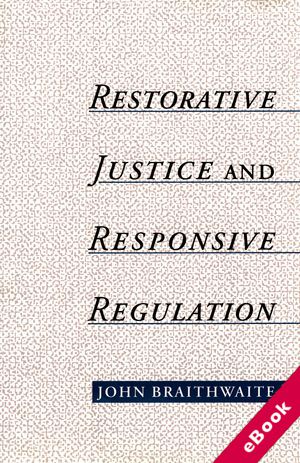
The device(s) you use to access the eBook content must be authorized with an Adobe ID before you download the product otherwise it will fail to register correctly.
For further information see https://www.wildy.com/ebook-formats
Once the order is confirmed an automated e-mail will be sent to you to allow you to download the eBook.
All eBooks are supplied firm sale and cannot be returned. If you believe there is a fault with your eBook then contact us on ebooks@wildy.com and we will help in resolving the issue. This does not affect your statutory rights.
This title argues against punitive justice systems and for restorative justice systems, establishing that there are good theoretical and empirical grounds for anticipating that well-designed restorative justice processes will restore victims, offenders, and communities better than existing criminal justice practices. It also shows that a restorative justice system may deter, incapacitate, and rehabilitate more effectively than a punitive system. This is particularly true when the restorative justice system is embedded in a responsive regulatory framework that opts for deterrence only after restoration repeatedly fails, and incapacitation only after escalated deterrence fails.
The author's empirical research demonstrates that active deterrence under the dynamic regulatory pyramid that is a hallmark of the restorative justice system he supports, is far more effective than the passive deterrence that is notable in the stricter ""sentencing grid"" of current criminal justice systems.;This book is intended for students and scholars of business and criminology.